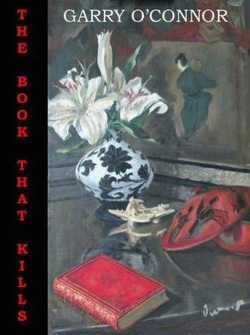
I found inspiration in Rider Haggard’s She, and, as it must be evident in the format I have used, Wilkie Collins’ The Moonstone. But my main inspiration, if it can be called that (or at least object of curious fascination) is Les Mémoires de Saturnin, an anonymous volume I found in my garage loft here on the border of Northamptonshire and Oxfordshire, when we moved into this fifteenth century courthouse in 1995. It could make a good publicity story, and it provides the start of The Book that Kills, by giving me the idea of a lost work with dangerous content, some of which, translated, I have included.
How this book got here I have no idea, it remains a mystery. I found a leading Dutch antiquarian bookseller has a later edition of the same work in his sale list for E 17,000. The British Library has only a mutilated edition. I sold it this year by auction at Christie’s. Some of the 24 illustrations (out of copyright) might be included in an edition of The Book That Kills. I have copies.
 RSS Feed
RSS Feed
